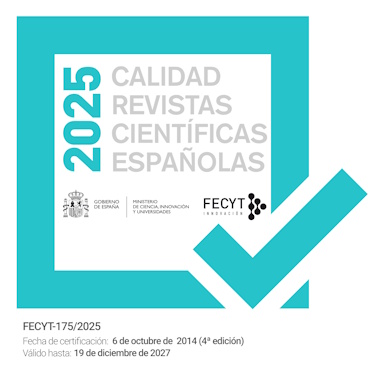Change and political stability in the Gulf monarchies after the Arab Spring
Keywords:
authoritarianism, Arab Spring, Gulf Cooperation Council, rentier statesAbstract
Revista CIDOB d’Afers Internacionals, nº 109
Quadrimestral (January-April 2015)
ISSN:1133-6595 | E-ISSN:2013-035X
The states of the Gulf Cooperation Council (GCC), aided by their rentier nature, have survived as authoritarian regimes until now. Nevertheless, the desire of significant sectors of society for political liberalisation was made evident in the Arab Spring. This article shows how the authorities have responded to these demands with a combination of redistributive, cooptive and repressive measures, alongside limited political reform. While elections were held in the six states in 2011 and 2012 as a partial response to citizens’ demands, greater legislative power has not been granted to the representative chambers. In contrast, the redistributive measures and repression seem, until now, to guarantee the stability of the existing political systems and the continuity of the governing families of the Gulf.
>> The full text articles of this issue are available only in Spanish language
References
Abdulla, Abdulkhaleq. «Contemporary socio-political issues of the Arab gulf moment». LSE Kuwait Programme on Development, Governance and Globalisation in the Gulf States, vol. 11 (2010), p. 1-36.
Ayubi, Nazih N. Over-stating the Arab state: Politics and Society in the Middle East. Londres: I.B.Tauris, 1995.
Beblawi, Hazem y Luciani, Giacomo (eds.). The rentier state. Londres: Routledge, 1987.
Brumberg, Daniel. «The trap of liberalized autocracy». Journal of democracy, vol. 13, n.º 4 (2002), p. 56-68.
Carothers, Thomas. «The End of the Transition Paradigm». Journal of Democracy, vol. 13, n.º 1 (2002), p. 5-21.
Crystal, Jill. Oil and Politics in the Gulf: rulers and merchants in Kuwait and Qatar. Cambridge: Cambridge University Press, 1990.
Crystal, Jill. «Political Reform and the Prospects for Democratic Transition in the Gulf». Working Paper FRIDE, n.º 11 (julio de 2005), p. 12 (en línea) [Fecha de consulta 10.06.2014] http://www.fride.org/publication/220/politicalreform-and-the-prospects-for-democratic-transition-in-the-gulf
Davidson, Christopher. After the Sheikhs: The Coming Collapse of the Gulf Monarchies. Londres: Hurst & Co., 2012.
Diamond, Larry Jay. «Thinking about Hybrid Regimes». Journal of Democracy, vol. 13, n.º 2 (2002), p. 21-35.
Ehteshami, Anoushiravan y Wright, Steven (eds.). Reform in the Middle East Oil Monarchies. Reading (UK): Ithaca Press, 2008.
Gray, Matthew. «A Theory of “Late Rentierism” in the Arab States of the Gulf». Occasional Paper CIRS, n.º 7 (2011), p. 43 (en línea) [Fecha de la consulta 10.06.2014] https://repository.library.georgetown.edu/bitstream/handle/10822/558291/CIRSOccasionalPaper7MatthewGray2011.pdf?sequence=5
Herb, Michael. «No representation without taxation? Rents, development and democracy». Comparative Politics, vol. 37, n.º 3 (2005), p. 297-316.
Hertog, Steffen. «Defying the Resource Curse: Explaining Successful Stateowned Enterprises in Rentier States». World Politics, vol. 62, n.º 2 (2010), p. 261-301.
Heydemann, Steven. «Upgrading Authoritarianism in the Arab World». The Saban Center for Middle East Policy at the Brookings Institution Analysis Paper, n.º 13 (octubre de 2007), p. 38 en línea) [Fecha de consulta 10.06.2014] http://www.brookings.edu/~/media/research/files/papers/2007/10/arabworld/10arabworld
Khalaf, Abdulhadi y Luciani, Giacomo. Constitutional Reform and Political Participation in the Gulf. Dubai: Gulf Research Center, 2006.
Levitsky, Steven y Way, Lucan A. «The Rise of Competitive Authoritarianism». Journal of Democracy, vol. 13, n.º 2 (2002), p. 51-65.
Mahdavi, Hussein. «The Pattern and Problems of Economic Development in Rentier States: The Case of Iran», en: Cook, M. A. (ed.). Studies in the Economic History of the Middle East. Londres: Oxford UniversityPress, 1970, p. 428-468.
Møller, Jørgen y Skaaning, Svend-Erik. «Regime Types and Democratic Sequencing». Journal of Democracy, vol. 24, n.º 1 (2013), p. 142-156.
Nonneman, Gerd. «Political Reform in the Gulf Monarchies», en: Ehteshami, Anoushiravan y Wright, Steven (eds.). Reform in the Middle East Oil Monarchies. Reading (UK): Ithaca Press, 2008, p. 3-45.
Peterson, John E. The Arab Gulf States: Further Steps towards Political Participation. Dubai: Gulf Research Center, 2006.
Peterson, John E. y Khadduri, Majid. The Arab Gulf States: Steps towards Political Participation. Westport: Praeger, 1988.
Saldaña Martín, Marta. «Bahréin: ¿un reino en busca de democracia?». Revista de Estudios Internacionales Mediterráneos, n.º 5 (mayo-agosto de 2008), p. 43-62.
Saldaña Martín, Marta. «El Golfo ante la “revolución árabe”: ¿tiempo para el cambio político?». Análisis del Real Instituto Elcano, n.º 55 (marzo de 2011) (en línea) [Fecha de consulta 08.06.2014] http://www.realinstitutoelcano. org
Saldaña Martín, Marta. Rentierism and Political Culture in the United Arab Emirates. The Case of UAEU Students. Tesis doctoral, University of Exeter y Universidad Autónoma de Madrid, 2014.
Saldaña Martín, Marta y Hamad, Leyla. «Movimientos de protesta en Yemen y Bahrein». Afkar / Ideas, n.º 30 (verano de 2011), p. 70-77.
Schedler, Andreas. «Elections without Democracy: The Menu of Manipulation». Journal of Democracy, vol. 13, n.º 2 (2002), p. 36-50.
Schedler, Andreas. «The Logic of Electoral Authoritarianism», en: Schedler, Andreas (ed.). Electoral Authoritarianism. The Dynamics of Unfree Competition. Boulder: Lynne Rienner, 2006, p. 1-23.
Sharabi, Hisham. Neopatriarchy. Oxford: Oxford University Press, 1988.
Szmolka, Inmaculada. «Los regímenes políticos híbridos: democracias y autoritarismos con adjetivos. Su conceptualización, categorización y operacionalización dentro de la tipología de regímenes políticos». Revista de Estudios Políticos, n.º 147 (2010), p. 103-135.
Szmolka, Inmaculada. «Democracias y autoritarismos con adjetivos: la clasificación de los países árabes dentro de una tipología general de regímenes políticos». Revista Española de Ciencia Política, n.º 26 (2011), p. 11-62.
Tétreault, Mary Ann; Okruhlik, Gwenn y Kapiszewski, Andrzej. Political change in the Arab Gulf states: Stuck in transition. Boulder: Lynne Rienner Publishers, 2011.
Valeri, Marc. «Election Report: Bahrain/ Parliamentary by-elections». OPEMAM Analysis (noviembre de 2011) (en línea) [Fecha de consulta 10.07.2014] http://www.opemam.org/node/113?language=en
Valeri, Marc. «Election Report: Oman/Consultative Council elections». OPEMAM Analysis (enero de 2012) (en línea) [Fecha de consulta 10.07.2014] http://www.opemam.org/node/110?language=en
Vitalis, Robert. America’s Kingdom: Mythmaking on the Saudi Oil Frontier. Stanford: Stanford University press, 2007.
Whitehead, Laurence. Democratization: Theory and Experience. Oxford: Oxford University Press, 2002.
Zaccara, Luciano. «Election Report: Qatar/ Central Municipal Council». OPEMAM Analysis (junio de 2011) (en línea) [Fecha de consulta 10.07.2014] http://www.opemam.org/node/115?language=en
Zaccara, Luciano. «Elecciones en el Golfo: resistir la “primavera árabe”». Política Exterior, vol. 26, n.º 148 (2012a), p. 136-147.
Zaccara, Luciano. «Comparando elecciones en el Golfo tras la “primavera árabe”». Ponencia presentada en el i Congreso Internacional Mundo Árabe en Cambio. CIMAC, Universidad Complutense de Madrid, 2012b.
Zaccara, Luciano. «Comparing Elections in Gulf Cooperation Council Countries after the Arab Spring: The United Arab Emirates, Oman, and Kuwait». Journal of Arabian Studies, vol. 3, n.º 1 (junio de 2013), p. 80-101.













